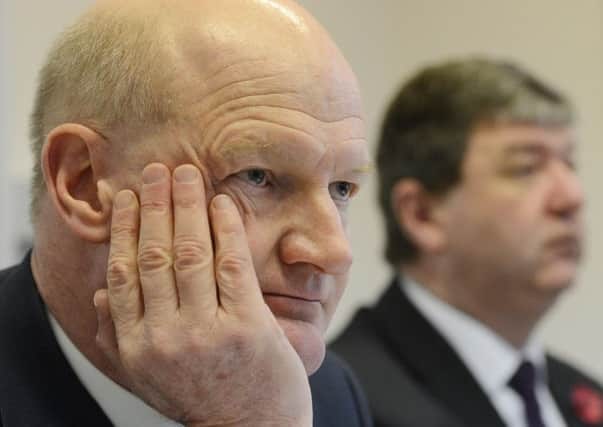Scots ‘snouts in the spending trough’ said PM aide


The papers from 1985 and 1986 have also revealed that Mrs Thatcher’s closest advisers and senior figures in the Treasury were set on scrapping the Barnett Formula which guarantees funding for Scotland to reduce the amount of money going north of the Border but failed because of opposition from the Prime Minister herself.
CONNECT WITH THE SCOTSMAN
• Subscribe to our daily newsletter (requires registration) and get the latest news, sport and business headlines delivered to your inbox every morning
Advertisement
Hide AdAdvertisement
Hide AdThe papers come as UK party leaders this year guaranteed the continuation of the Barnett Formula which gives Scotland more spending per head than the English following the independence referendum.
But two decades ago the ongoing efforts of senior figures in the Thatcher government to slash Scottish funding saw the formula put under threat.
They were highlighted in a letter in 22 August, 1985 by former Chief Treasury Secretary Peter Rees, who was to lose his job shortly afterwards.
He said: “We believe, and the Secretary of State for Scotland [George Younger] does not deny, that in almost all areas of public expenditure, provision in Scotland is higher than in England. Can a correction be made?”
However, Mr Rees’ removal did not lessen the danger to the Scottish and Northern Irish budgets. In a note to Mrs Thatcher, her private secretary David Norgrove said: “I am sorry to have to come back to this. Further discussion with the Treasury has shown that neither I nor the Policy Unit took fully on board the implications of the Chief Secretary’s minute.
“The Treasury think it is most unlikely that the new Chief Secretary [Scots-born John MacGregor] will want to change his predecessor’s position.”
Pressure to reduce spending in Scotland and Northern Ireland was coming from Mrs Thatcher’s closest advisers including Mr Willetts, who until this year was the universities minister in the Coalition Government, but was a policy adviser for Mrs Thatcher.
He said in a note dated 29 July, 1985: “Scotland and Northern Ireland have their snouts well and truly in the public expenditure trough. The challenge is to find a politically acceptable way of putting them on the same diet as the English.” He accused the then Scottish Secretary George Younger of only pretending to resist devolution but “is in practice delivering it.”
Advertisement
Hide AdAdvertisement
Hide AdHe told Mrs Thatcher: “Your economic policies stop at the Border.” And he added: “The Scottish opinion polls don’t suggest that the Government is getting any credit for this high spending.”
But the papers also show attempts to cut the Scottish block grant were personally vetoed by the Prime Minister after Chief Secretary to the Treasury John MacGregor pitched for the Ministry of Defence and Scotland Office to take the brunt of cuts in a meeting on 9 May, 1986.
A note of the meeting, also involving Chancellor Nigel Lawson and Lord President Willie Whitelaw said: “The Chief Secretary said there were only two large candidates for real savings; defence and Scotland. The Prime Minister’s first response was that neither would be a good candidate for reductions.”
SNP Depute Leader Stewart Hosie said: “These revelations prove beyond doubt that the Tory obsession with slashing Scotland’s budget goes back decades.””
SCOTSMAN TABLET AND IPHONE APPS